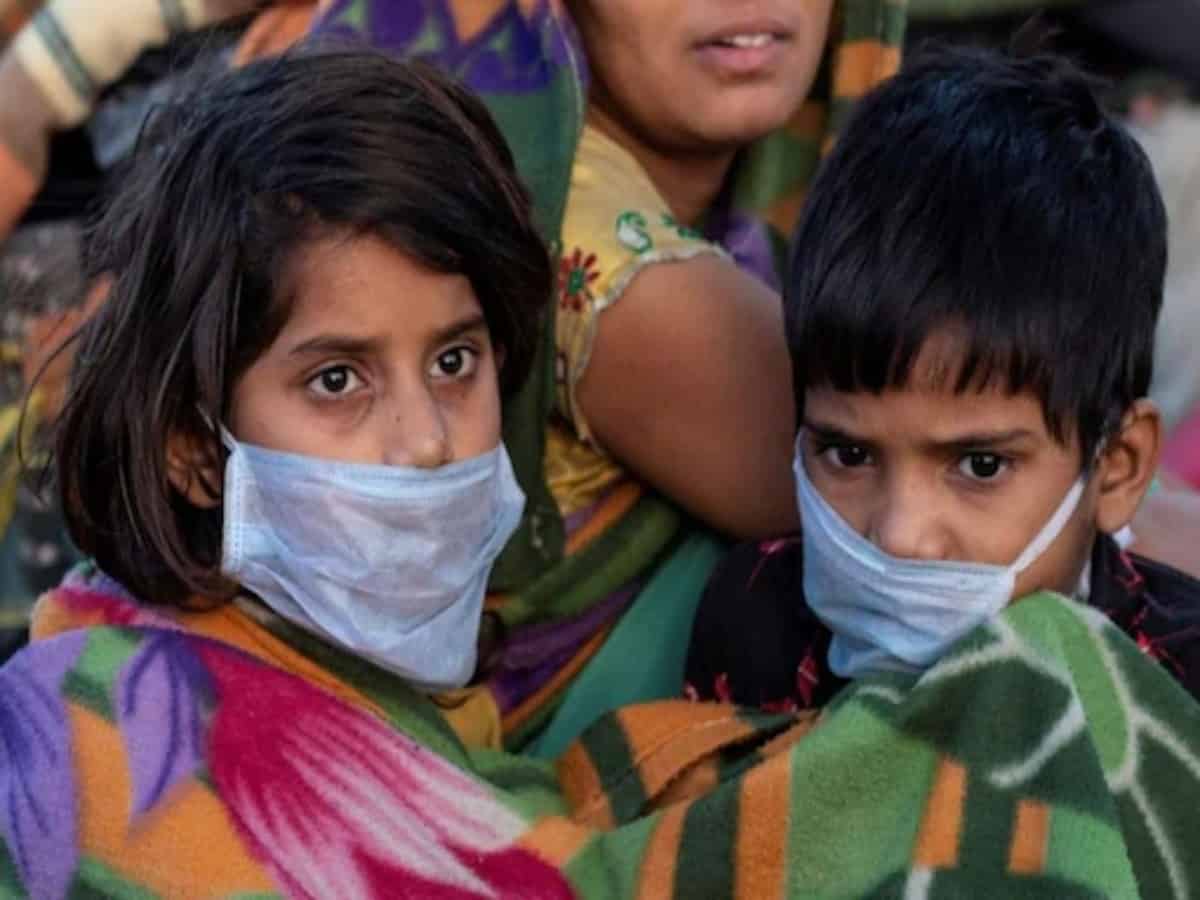
Bharatiya Jan Sangh, the precursor of Bharatiya Janata Party (BJP), along with the various affiliates of the Sangh Parivar, its spiritual mentor, were in the forefront of a smear campaign to run down and discredit the Family Programme in the eyes of the people, at a time when Indira Gandhi gave it a determined push, especially during the Emergency between 1975 to 1977.
Ironically, the BJP was determined to run down the Family Planning Programme, when it was most needed; while espousing its cause, when the population explosion has not only stabilized but even plateaued.
It appears, the BJP is talking not Population Policy but is talking Population Politics; and that, too, in states with sizable minority population, like Uttar Pradesh, Assam and Lakshadweep. Further, the Hindutva Brigade will take it to Gujarat and Karnataka, as everyone knows who their target audience is.
Those familiar with Sangh Ideology will know where exactly BJP is talking about reducing population, with its focus more on reducing Minority population, as such, than on population control.
Indian population around Independence in 1947 was 30 crore and by the time of Emergency in 1975, it doubled to 60 crore. In the true sense of the term, that was the time when population was growing by leaps and bounds. Precisely that was the time tough policy measures were required to tackle population explosion.
Indira Gandhi was convinced that without achieving population control, the fruits of development cannot reach all sections of people. Indira Gandhi also felt that unless Family Planning succeeds, it is difficult to uphold the Right to Education, Right to Nutrition and the Right to Healthy Life of the people, as a whole.
Constructive Programme
Like Gandhiji’s Constructive Programme during the Freedom Struggle (Khadi, Promotion of Untouchability, Prohibition), Indira Gandhi took to such a Constructive Programme during the Emergency (20-Point Programme and 5-Point Programme), which included Family Planning, that deservedly enjoyed the highest priority.
In 1952, Dhanwantri Rama Rau was the woman who for the first time planned and designed the nationwide Family Planning Programme. Initially, its aim was mainly birth control.
Indira Gandhi, who brought focus back on Family Planning, later expanded it to include mother and child health, nutrition and family welfare, in its ambit.
During the Emergency between 1975 and 1977, Indira Gandhi gave it a serious, determined push, as she was convinced that it was in the best national interest.
Indian Klu Klux Klan Strategy
The Hindutva Brigade, which is more an Indian variant of the Klu Klux Klan in the United States of America, wantonly demonized it, forcing successive Governments to abandon it. It conducted sustained campaign of vilification to discredit it in the eyes of the people.
As a youth, I remember hearing of the scare created against Modern Bread, a popular brand of a Government-owned company. The rumour mills had it that Family Planning medicine was mixed in Modern Bread and eating it will cause sterilization!
I also heard other stories spread by the rumour-mongering mills. A widow boards a bus and a youth advises a sitting passenger to offer his seat to Indira Gandhi (reference to the widow). Immediately he is held by his collar and dragged out of the running bus by plainclothes men and Family Planning operation is performed on the youth.
Where? When? How? No substantiating such stories. Only whisper campaign by Rumour-Mongering Society to discredit and demonize Family Planning Programme.
As many as 33 Commissions of Inquiry set up by the Janata Party Government that came to power in 1977, only to target Indira Gandhi, could not establish the so-called Emergency excesses. The Janata Party Government itself did not initiate any action in this regard, as the obvious purpose of garnering votes by raising the specter of fear was already achieved.
But the slander campaign worked. The Janata Party Government that came to power after the electoral defeat of Indira Gandhi in 1977, changed the name of the Ministry of Health and Family Planning to the Ministry of Health and Family Welfare when Raj Narain, who defeated Indira Gandhi in Rae Bareli in Uttar Pradesh was named the Minister.
Attitudinal Change
Begum Bilkees Latif, the wife of Air Chief Marshal Idris Hasan Latif, who had also served as the Indian Ambassador to France and as Maharashtra Governor, was involved with her social work, not only in Dharavi, Asia’s biggest slum, besides in Old Hyderabad.
Begum Bilkees Latif had admitted privately that Muslim women from the old city of Hyderabad quietly recognized the merit in it and came forward to undergo Family Planning operations.
For Indira Gandhi, it was a case of bringing in attitudinal changes in the mindset of the people. Indira Gandhi once narrated an anecdote. During an interaction with diplomats on conditions of poverty in India, one diplomat interjected to say that while poverty is understandable, what about lack of hygiene? Indeed, it is indefensible. You may be poor, but you can be clean.
During a debate in the Lok Sabha, Indira Gandhi said, “If I say, ‘keep the street clean,’ it does not mean that I expect you to go out with broom, although I think if the need arises, you should not be ashamed, or unwilling, or embarrassed to do so. But that is not the question. The question is that if each person decides that ‘I am going to be clean,’ the place is automatically clean.”
Similarly, Family Planning is an attitudinal issue. If an individual is convinced that it is in his or her best interest, half the battle is won. It is for this attitudinal change that she endeavoured a lot.
No Compulsion
During the debate on the Constitution 42 Amendment in the Lok Sabha on October 27, 1976, Indira Gandhi said, “As regards Family Planning, the Health Minister and I have made repeated and clear statements of the policy of Government of India. We do not approve of compulsion. But we do believe that programmes of sterilization and the adoption of all other known effective measures for the control of population are important and most urgent. It is our view, as that of many other non-governmental people, who have travelled around the country, that there is now awareness and acceptance of these programmes. But — and it is a Big But — certain parties, groups and individuals have been raising a hue and cry, creating misunderstanding and an atmosphere of fear. As we all know, fear leads to irrational action. Therefore, when a situation of confrontation is deliberately created, there are tragic consequences.
Some deaths have taken place due to firing, though the figure by some Hon Members is greatly exaggerated. On the other hand, organized groups have also attacked policemen and other citizens, even those, who were not on the Family Planning mission. Where there is harassment, it should certainly be dealt with. But, it will be easier to do so, if people are not incited and encouraged to take the law into their own hands and also if political parties and outside interests will not try to take political advantage of the situation.”
Compulsion cannot be an option in a democracy. In fact, that was the biggest challenge she faced, of bringing about reform measures with consent that is in keeping with the democratic framework.
Indira Gandhi lost the battle of perception that is key in a democracy. As a result, India lost the battle for population control, paying a heavy price for it.
Venkat Parsa is a senior journalist and writer based in New Delhi.
Views expressed are personal

